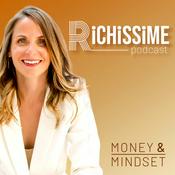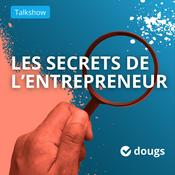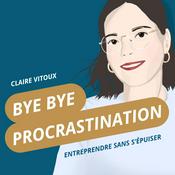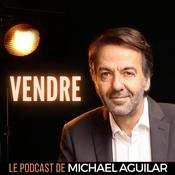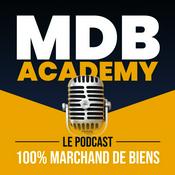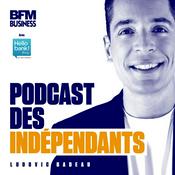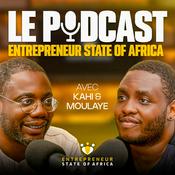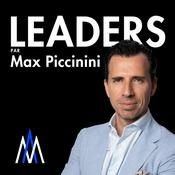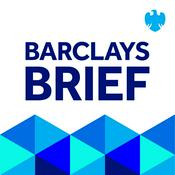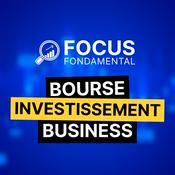55 épisodes
- Let’s get right to the point: Nobel Prize winner Jennifer Doudna is on the pod this week.
Doudna won the 2020 Nobel Prize in Chemistry alongside Emmanuelle Charpentier for their work developing “a method for high-precision genome editing.” They, and others, helped usher in the CRISPR revolution with people getting very, very excited about the prospects of editing genes in humans, animals, and plants with more precision and ease.
There have been some massive recent CRISPR wins. Casgevy, which treats sickle cell disease, emerged as the first FDA-approved CRISPR therapy. And, last year, an infant in Pennsylvania had a rare disease treated with record-breaking speed via CRISPR technology.
That said, CRISPR has, in many ways, not lived up to the hope and hype just yet. CRISPR therapies remain expensive and tough to distribute throughout the body.
Doudna is convinced that several major CRISPR breakthroughs are upon us, and we get into where she sees the field going. We discuss the work she’s doing at start-ups and the Innovative Genomics Institute – a research powerhouse that links UC Berkeley, UC San Francisco, and UC Davis.
And we talk about Pomona College, our shared alma mater, rejecting our wonderful, brilliant children who will no doubt go on to do amazing things in the world and likely make untold billions that will be donated to other tremendous institutions. JK. Chirp, chirp!
If you want to get up to speed on gene editing’s present and future, you will not find a better discussion.
The Core Memory podcast is on all major platforms and on our YouTube channel over here. If you enjoy the show, please leave a review and tell your friends.
This podcast is sponsored by Brex, the intelligent finance platform built to help companies spend smarter and move faster.
We run on Brex and so should you. Learn more about Brex right here.
The podcast is also made possible by E1 Ventures, which backs the most ambitious founders (probably some peptide users) and start-ups.
This is a public episode. If you'd like to discuss this with other subscribers or get access to bonus episodes, visit www.corememory.com/subscribe - On January 5th, famed AI researcher Jerry Tworek stunned world+dog by announcing his departure from OpenAI. A few days later, he hopped over to the Core Memory podcast studio for his not-so-formal exit interview.
Tworek joined OpenAI in 2019 when the research lab was a research lab and had about thirty employees. He went on to work on many of OpenAI’s most consequential products, including the company’s reasoning technology, which ushered in a new era for the entire AI field. (Yes, Tworek worked on Q* before it was Strawberry before it was o1.)
Both Kylie and I have been longtime Tworek fans. He’s smart, funny and never really sought the limelight despite his massive contributions.
In the episode, Tworek reveals that he found it hard to keep doing high-risk, pioneering work at OpenAI as the company shifted toward what Tworek describes as more conservative ways. He, in fact, thinks the large AI companies have become conservative as a whole and that there might be bigger, better ideas to be found elsewhere.
This is a public episode. If you'd like to discuss this with other subscribers or get access to bonus episodes, visit www.corememory.com/subscribe - Biohacking has gone through a lot of different phases. Implanting an NFC chip in your hand is old school and having a blood boy is passé. Among Silicon Valley’s 20-somethings, all the cool kids have a peptide stack.
Jasmine Sun joins us this week to chat about all things peptides. She was previously a product manager at Substack, but now she writes about San Francisco culture on her own Substack. Jasmine recently published a deep dive in The New York Times about the trendy injectable and deets on the Chinese peptide rave (which you first read about from our new writer, Kylie Robison, last month).
If you want to be like Wolverine, don’t do drugs. Subscribe to our newsletter and podcast instead. Our words are made of adamantium.
Do you feel old yet? We do.
In this episode, we get into all the important bits: What are peptides, why are they Chinese, and how is RFK Jr. involved? This is not medical advice, but if you do inject some peptides after this episode, tag us.
The Core Memory podcast is on all major platforms and on our YouTube channel over here. If you enjoy the show, please leave a review and tell your friends.
Our show is sponsored by Brex. It builds finance tech that makes expensing and accounting for things like peptides super easy, if your company is cool with such things.
Like thousands of ambitious, innovative companies, we run on Brex so we can spend smarter and move faster. And you can too. Learn more at www.brex.com/corememory
The podcast is also made possible by E1 Ventures, which backs the most ambitious founders (probably some peptide users) and start-ups.
This is a public episode. If you'd like to discuss this with other subscribers or get access to bonus episodes, visit www.corememory.com/subscribe - We have a guest host and some breaking news for this episode.
Eryney Marrogi, the scientist and soon-to-be doctor who writes for us now and again, has taken over the pod studio to interview Richard Fuisz. Earlier today, Marrogi broke a story on Fuisz’s company Nonfiction Labs, which has developed technology that could make it possible to use magnets to better control how cancer therapies are doled out in the body.
The two big brains get into Nonfiction’s technology and into Fuisz’s rather prolific work at the cutting-edge of the biotech field. The conversation goes into how biotech actually gets built, competition with China and Fuisz’s family legacy of invention (his grandfather was the prolific inventor featured in “Bad Blood”).
The Core Memory podcast is on all major platforms and on our YouTube channel over here. If you enjoy the show, please leave a review and tell your friends.
Our show is sponsored by Brex, the intelligent finance platform. Like thousands of ambitious, innovative companies, we run on Brex so we can spend smarter and move faster. And you can too. Learn more at www.brex.com/corememory
The podcast is also made possible by E1 Ventures, which backs the most ambitious founders and start-ups.
This is a public episode. If you'd like to discuss this with other subscribers or get access to bonus episodes, visit www.corememory.com/subscribe Is The Era Of AI-Designed Drugs Actually Here? - EP 50 Josh Meier and Jack Dent
24/12/2025 | 1 h 29 minWe have been talking about computer-aided drug discovery for well more than a decade. It used to be the case that start-ups pitched their ability to use “machine learning” to hunt for new, promising therapies. Now we call machine learning “artificial intelligence” and have a new class of start-ups claiming big science breakthroughs.
One of these new wave start-ups is Chai Discovery and its founders Josh Meier and Jack Dent join the podcast this week. (The Core Memory podcast is available on all major platforms and on our YouTube pod channel.) The company was founded in 2024 and is backed by OpenAI, Menlo Ventures+Anthropic, Thrive and others. (Chai is already a unicorn.) It published a number of notable accomplishments this last year, including using its own AI model to churn out promising antibody designs at an unprecedented clip.
The first couple iterations of machine learning-aided drug discovery companies came and went without tremendous success. Chai and Nabla Bio are two of the buzziest members of this new era of AI companies. Their models really do seem to be harnessing the advances in AI to hit on potential drug targets and designs in rather profound ways. Bio-tech, in fact, seems like the place where AI may make the most stunning scientific advances first.
In this episode, we get into Chai’s intellectual roots as a research project within Facebook/Meta and how the company has gone after building its models. We also try to provide a realistic picture of the current state of AI drug discovery.
The implications of the work done by Chai, Nabla and others are far reaching. If we’re able to come up with new drug designs at this accelerated rate, we will need major changes around how drugs are tested and put through trials. The current drug testing and FDA approval system is simply not set up to move as quickly as bio-tech appears to be going.
This will be our last episode for the year, and we’re taking a tiny break between posting the next one as the Core Memory crew has a little time off. Thank you so, so much to all of you who have listened to the show in our first year. We hope you’ve enjoyed it and learned some things along the way.
Our show is sponsored by Brex, the intelligent finance platform. Like thousands of ambitious, innovative companies, we run on Brex so we can spend smarter and move faster. And you can too. Learn more at www.brex.com/corememory
The podcast is also made possible by E1 Ventures, which backs the most ambitious founders and start-ups.
This is a public episode. If you'd like to discuss this with other subscribers or get access to bonus episodes, visit www.corememory.com/subscribe
Plus de podcasts Business
Podcasts tendance de Business
À propos de Core Memory
Core Memory is a podcast about science and technology hosted by best-selling author and filmmaker Ashlee Vance.
Vance has spent the past two decades chronicling advances in science and tech for publications like The Economist, The New York Times and Bloomberg Businessweek. Along with the stories, he's written best-selling books like Elon Musk’s biography, made an Emmy-nominated tech TV show watched by millions and produced films for HBO and Netflix. The goal has always been to bring the tales of complex technology and compelling people to the public and give them a path into exceptional and unusual worlds they would not normally have a chance to experience. www.corememory.com
Site web du podcastÉcoutez Core Memory, Ressentir ou d'autres podcasts du monde entier - avec l'app de radio.fr
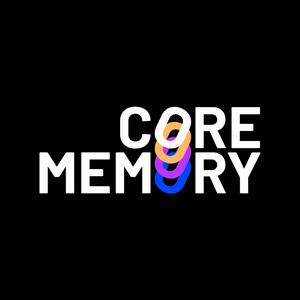
Obtenez l’app radio.fr gratuite
- Ajout de radios et podcasts en favoris
- Diffusion via Wi-Fi ou Bluetooth
- Carplay & Android Auto compatibles
- Et encore plus de fonctionnalités
Obtenez l’app radio.fr gratuite
- Ajout de radios et podcasts en favoris
- Diffusion via Wi-Fi ou Bluetooth
- Carplay & Android Auto compatibles
- Et encore plus de fonctionnalités


Core Memory
Scannez le code,
Téléchargez l’app,
Écoutez.
Téléchargez l’app,
Écoutez.








